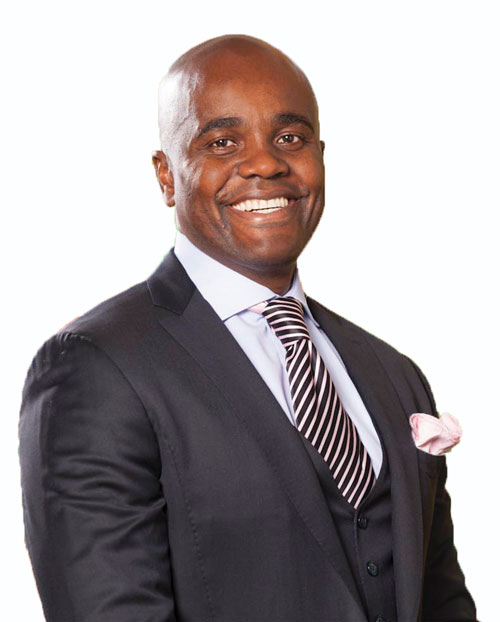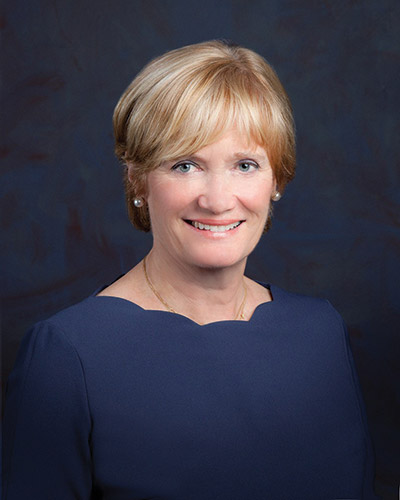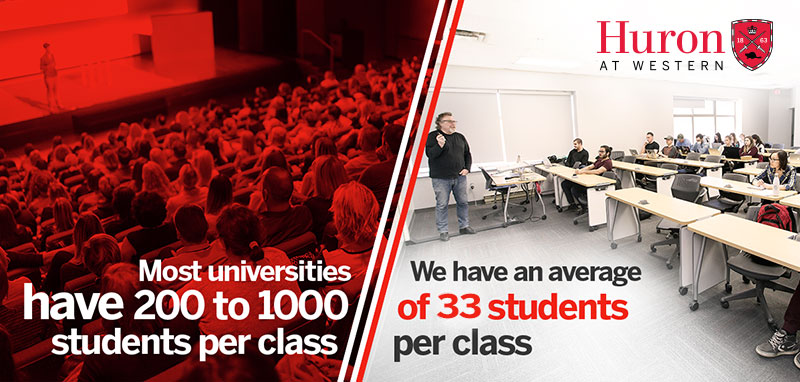ASSISTANT PROFESSOR IN MARKETING AND SUSTAINABILITY, Management and Organizational Studies
A major theme of my teaching and research focuses on how and why people pursue or neglect ethical, healthy, or environmentally-sustainable lifestyle choices.
Matthew Maxwell-Smith is an Assistant Professor in Marketing & Sustainability at Huron. Matthew has published articles in top Business and Psychology journals on topics such as environmentally-sustainable consumption, social media use, voting, health, collective action, intergroup bias, and relationships, and has received national awards for his dissertation and other lines of research. Matthew has taught various undergraduate courses, including Consumer Behavior, Social Psychology, Marketing Research, Integrated Marketing Communications, International Marketing, Applied Psychology, and Industrial-Organizational Psychology. Matthew also has professional experience in the marketing research industry, leading teams to conduct research projects and prepare advanced reports for Fortune 500 clients.
Matthew may be able to serve as a mentor/supervisor for Huron MOS Independent Study or CURL students who have taken Consumer Behaviour (MOS 3321).
Sample publications:
- Maxwell-Smith, M. A., Barnett White, T., & Loyd, D. (2020). Does Perceived Treatment of Unfamiliar Employees Affect Consumer Brand Attitudes? Social Dominance Ideologies Reveal Who Cares the Most and Why. Journal of Business Research, 109, 461-471. doi: 10.1016/j.jbusres.2019.12.039
- Dumas, T. M., Maxwell-Smith, M. A., Tremblay, P. F., Litt, D. M., & Ellis, W. (2020). Gaining likes, but at what cost? Longitudinal Relations between young adults’ deceptive like-seeking on Instagram, peer belonging, and self-esteem. Computers in Human Behavior, 112, Article 106467. doi: 10.1016/j.chb.2020.106467
- Maxwell-Smith, M. A., Conway, P., Wright, J., & Olson, J. (2018). Translating Environmental Ideologies into Action: The Amplifying Role of Commitment to Beliefs. Journal of Business Ethics, 153, 839–858. doi: 10.1007/s10551-016-3404-3
- Dumas, T. M., Maxwell-Smith, M. A., Davis, J. P., & Giulietti, P. A. (2017). Lying or Longing for Likes? Narcissism, Peer Belonging, Loneliness and Normative versus Deceptive Like-seeking on Instagram in Emerging Adulthood. Computers in Human Behavior, 71, 1-10. doi: 10.1016/j.chb.2017.01.037.
Media coverage: Psypost.org; Western News; Phys.org; Canadian Broadcasting Corporation; The Straits Times; MediaPost; The Londoner; Yahoo! News - Barrios, A., De Valck, K., Shultz, C., Sibai, O., Husemann, K., Maxwell-Smith, M. A., & Luedicke, M. (2016). Marketing as a Means to Transformative Social Conflict Resolution: Lessons from Transitioning War Economies and the Colombian Coffee Marketing System. Journal of Public Policy & Marketing, 35 (2), 185-197. doi: 10.1509/jppm.15.151
- Maxwell-Smith, M. A., Barnes, K., Wright, J., Thomson, C., Mattos, M., & Dumas, T. M. (2016). Competition and Intergroup Bias: Toward a New Model of Distinguishing Competitive Perceptions from Competitive Motivations. Group Processes and Intergroup Relations, 19 (6), 808-832. doi: 10.1177/1368430216642027
- Maxwell-Smith, M. A., Seligman, C., Conway, P., & Cheung, I. (2015). Individual Differences in Commitment to Value-Based Beliefs and the Amplification of Perceived Belief Dissimilarity Effects. Journal of Personality, 83 (2), 127-141. doi: 10.1111/jopy.12089








 Wes Hall is the Founder and Chairman of Kingsdale Advisors, and The BlackNorth Initiative, and Canada’s first Black Dragon investor on CBC’s Dragons’ Den.
Wes Hall is the Founder and Chairman of Kingsdale Advisors, and The BlackNorth Initiative, and Canada’s first Black Dragon investor on CBC’s Dragons’ Den.


 Leigh Allen is the AVP, Global Strategic Research, Reinsurance Group of America Inc., one of the world’s largest global life and reinsurance companies.
Leigh Allen is the AVP, Global Strategic Research, Reinsurance Group of America Inc., one of the world’s largest global life and reinsurance companies. Yola Ventresca is a Managing Partner, Lerners LLP, Secretary of Huron’s Board of Governors and a Huron Class of ’02 alumni. Selected as one of Canada’s “Best Lawyers,” she is passionate about the value of Liberal Arts in helping students succeed in their careers.
Yola Ventresca is a Managing Partner, Lerners LLP, Secretary of Huron’s Board of Governors and a Huron Class of ’02 alumni. Selected as one of Canada’s “Best Lawyers,” she is passionate about the value of Liberal Arts in helping students succeed in their careers.

 Lisa Jones Keenan is the Vice President of Sales at Xplornet Communications, the largest rural fixed wireless broadband service provider in Canada.
Lisa Jones Keenan is the Vice President of Sales at Xplornet Communications, the largest rural fixed wireless broadband service provider in Canada.  Ranjita is Executive Chair of the Oxford Global Partnership, advising investors, businesses, family offices and entrepreneurs on sustainable, inclusive and responsible value creation. A Business Fellow at Oxford University’s Smith School, Ranjita engages with companies on pursuing value with values, and teaches a postgraduate “Essentials of ESG & DEI” course.
Ranjita is Executive Chair of the Oxford Global Partnership, advising investors, businesses, family offices and entrepreneurs on sustainable, inclusive and responsible value creation. A Business Fellow at Oxford University’s Smith School, Ranjita engages with companies on pursuing value with values, and teaches a postgraduate “Essentials of ESG & DEI” course. Michael Medline is the President and CEO of Empire Company Limited and Sobeys Inc., a leading Canadian grocery retailer with grocery and ecommerce brands that reach across Canada, including Sobeys, Safeway, IGA, FreshCo, Foodland, Thrifty Foods, Farm Boy, Longo’s and Voilà.
Michael Medline is the President and CEO of Empire Company Limited and Sobeys Inc., a leading Canadian grocery retailer with grocery and ecommerce brands that reach across Canada, including Sobeys, Safeway, IGA, FreshCo, Foodland, Thrifty Foods, Farm Boy, Longo’s and Voilà. Susan Farrow is an Assistant Professor in The Temerty Faculty of Medicine at the University of Toronto and a Founding Partner and Co-Director of The Toronto Institute of Group Studies, an organization offering certified training and education in group leadership.
Susan Farrow is an Assistant Professor in The Temerty Faculty of Medicine at the University of Toronto and a Founding Partner and Co-Director of The Toronto Institute of Group Studies, an organization offering certified training and education in group leadership.  Frank Holmes is CEO and Chief Investment Officer of U.S. Global Investors, as well as a business commentator, philanthropist and Huron Class of ‘78 alumnus. Holmes also serves as the Executive Chairman of HIVE Blockchain Technologies, the first cryptocurrency mining company to go public in 2017.
Frank Holmes is CEO and Chief Investment Officer of U.S. Global Investors, as well as a business commentator, philanthropist and Huron Class of ‘78 alumnus. Holmes also serves as the Executive Chairman of HIVE Blockchain Technologies, the first cryptocurrency mining company to go public in 2017. Caleb Hayhoe is the Founder & Chairman of Flowerdale Group and a Huron Class of ’85 Alumnus. Flowerdale Group is a Hong Kong based family office with a global investment outlook across public markets, real estate and private investment. Hayhoe previously spent over ten years building a global sourcing business together with an exceptional team, and remains committed to entrepreneurialism and helping great ideas become sustainable companies.
Caleb Hayhoe is the Founder & Chairman of Flowerdale Group and a Huron Class of ’85 Alumnus. Flowerdale Group is a Hong Kong based family office with a global investment outlook across public markets, real estate and private investment. Hayhoe previously spent over ten years building a global sourcing business together with an exceptional team, and remains committed to entrepreneurialism and helping great ideas become sustainable companies. Kelly Meighen is an experienced philanthropist and volunteer. In her role as president of the T.R. Meighen Family Foundation, she has created a legacy of volunteerism and philanthropic giving in the areas of youth mental health advocacy, environmental conservation and cultural vibrancy.
Kelly Meighen is an experienced philanthropist and volunteer. In her role as president of the T.R. Meighen Family Foundation, she has created a legacy of volunteerism and philanthropic giving in the areas of youth mental health advocacy, environmental conservation and cultural vibrancy. 




